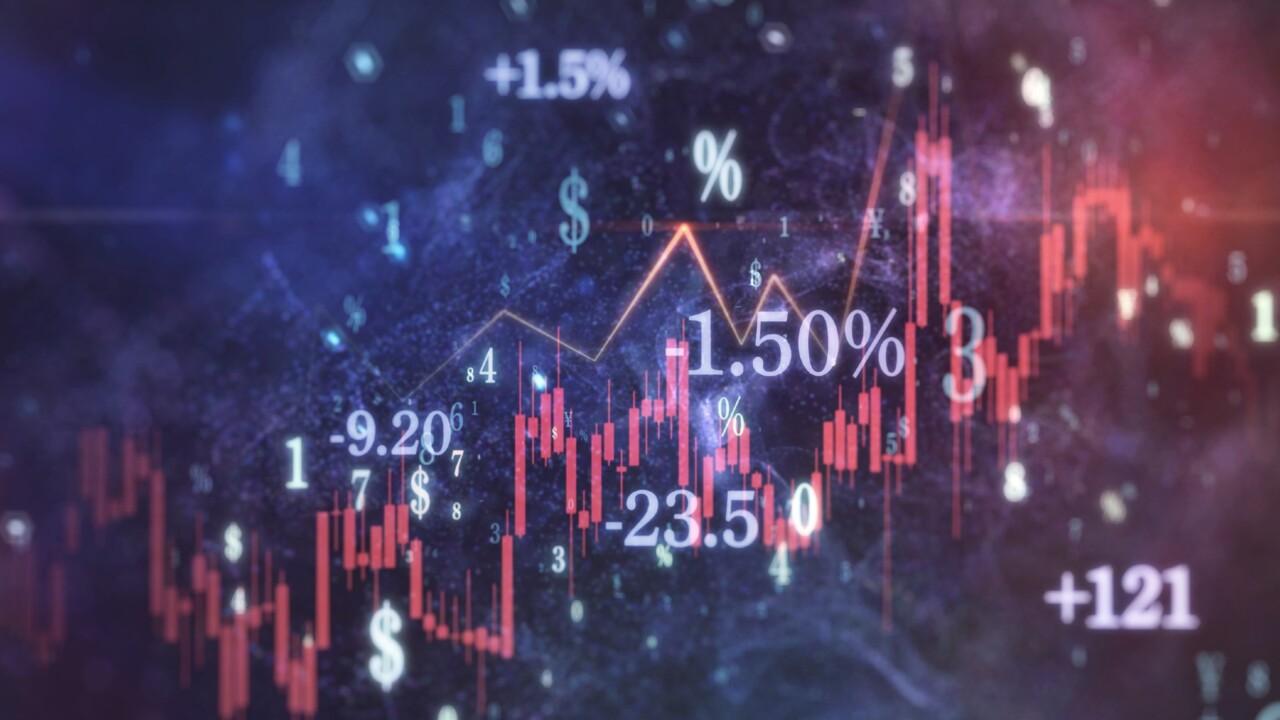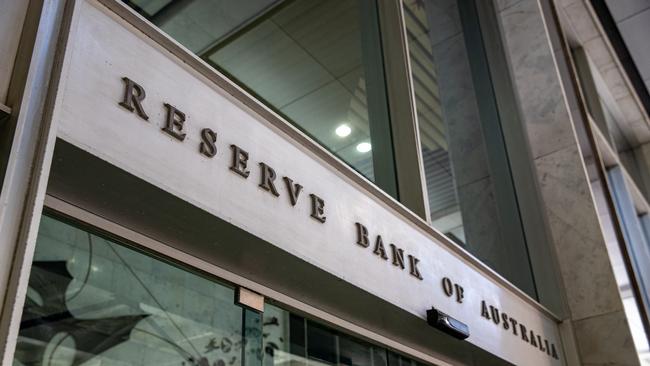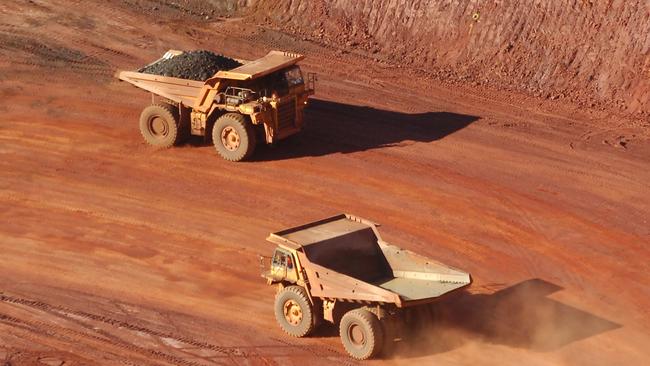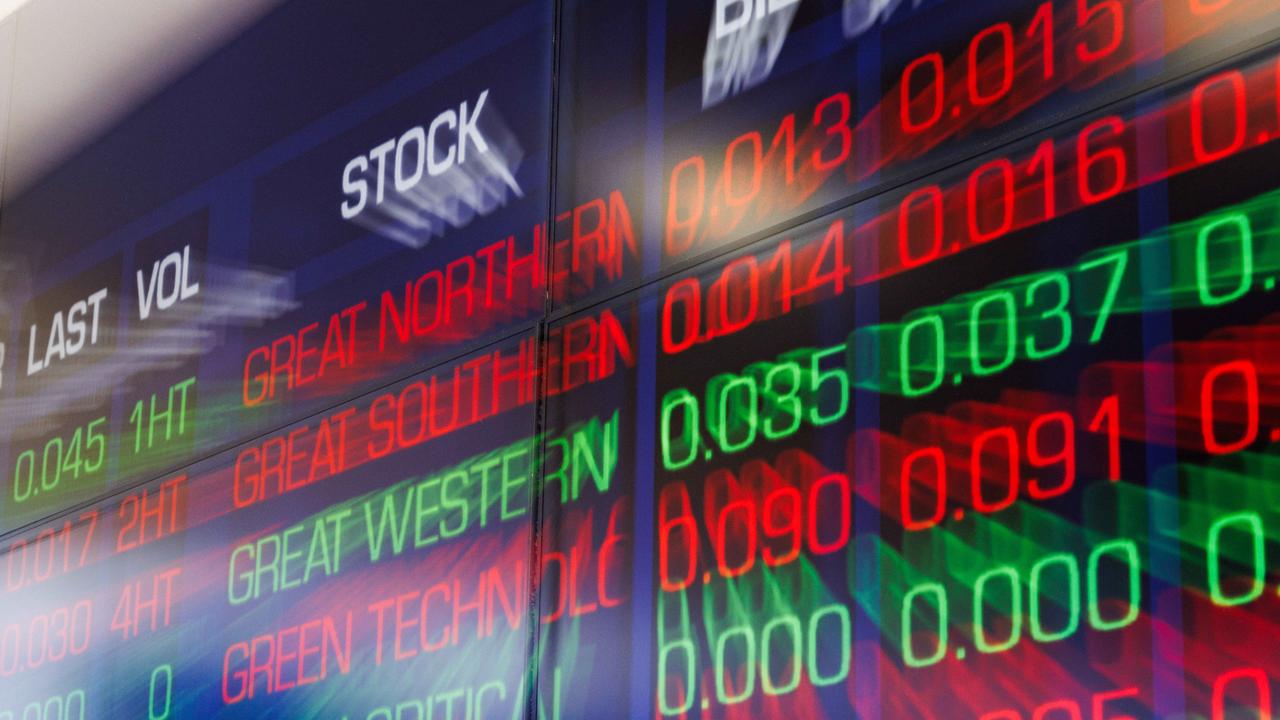Australian share market falls after iron ore miners took a hit
Despite a cooler than expected inflation reading for November, the share market lost ground on Wednesday as iron ore miners dragged the benchmark lower.

Business
Don't miss out on the headlines from Business. Followed categories will be added to My News.
Australian shares slipped on Wednesday even as fresh inflation figures undershot expectations.
At the closing bell, the S&P/ASX200 had shed 0.7 per cent, or 52 points, to 7,468.5, while the All Ordinaries fared slightly better, falling 0.6 per cent to 7.702.7.
The Australian dollar was higher against the greenback, rising 0.3 per cent to 67.04c at the end of the session.
Released on Wednesday, the latest consumer price index figures showed annual inflation slowed to 4.3 per cent in November, below consensus forecasts of a 4.4 per cent increase, easing pressure on RBA to hike rates at its February meeting.

But despite an easing in price pressures, HSBC chief economist Paul Bloxham said progress towards the RBA’s 2 to 3 per cent target band would be slow.
“We expect that the RBA will remain concerned that although inflation has fallen well below its peaks, the last leg in this process, of getting it to fall back into its target band, may still prove to be challenging and will take some time,” Mr Bloxham said.
HSBC is pencilling in a hold in February with rate cuts to commence in early 2025.
Market pricing for rate cuts was largely unchanged after the November inflation print, with 25 basis points of easing expected at the RBA’s August meeting, followed by a second cut in December.
Material stocks were the biggest drag on the ASX200, declining 2.1 per cent in their worst session since October as iron ore futures extended their losses for the fifth straight session, falling 1.9 per cent at $US135.15 a tonne on the Singapore exchange for the February contract.
ASX heavyweight BHP tumbled 2.3 per cent to $47.86, while other iron ore majors also declined with Rio Tinto dropping 2.3 per cent to $128.90 and Fortescue falling 1.8 per cent to $27.56.

Gemma Dale, director of investor behaviour at NAB Trade, said after significant gains for the commodity since October, it was inevitable that the prices would cool.
“It’s just been such a strong rally so there had to be a pause,” Ms Dale said.
“It’s only a little decline at this point … it’s not material when you consider we were above $US140 per tonne.”
Lithium miners also fared poorly with Pilbara Minerals down 4.4 per cent to $3.69, Liontown Resources 3.9 per cent lower to $1.47 and IGO off 8.1 per cent to $7.77.
Elsewhere in commodities, uranium stocks soared after the US Department of Energy announced it was seeking bids from contractors to help shore up its supply of the highly enriched uranium fuel in a bid to wean itself off Russian supplies.
Paladin Energy surged 10.9 per cent to $1.18 and Boss Energy vaulted 6.9 per cent to $4.95, while uranium enrichment technology provider Silex Systems rocketed 13.6 per cent to $4.60.
Overnight, stocks on Wall Street struggled to gain momentum after posting solid gains at the start of the week. While the tech-heavy Nasdaq added 0.1 per cent, the S&P 500 eased 0.2 per cent lower and the Dow Jones Industrial Average lost 0.4 per cent.
In company news, shares of newly listed lithium explorer Kali Metals soared 44.8 per cent to 76c, following a 74 per cent rise in trading on Monday, after it said multiple deposits for the battery mineral were identified at its Spargoville Project in Western Australia.
Despite disclosing a near 10 per cent stake in the firm, Mineral Resources shed 6.1 per cent to $63.
Alumina extended its gains, adding 17.4 per cent to $1.15, after it was announced that operations at its Kwinana refinery, co-owned with US-based aluminium producer Alcoa, would cease. Analysts at Goldman Sachs rated the stock as a buy following the news.
After exiting a trading halt, shares in engineering firm Worley dived 2.3 per cent to $16.53 as it denied findings made by an Ecuadorean tribunal the company had acted in a corrupt manner.
Originally published as Australian share market falls after iron ore miners took a hit




